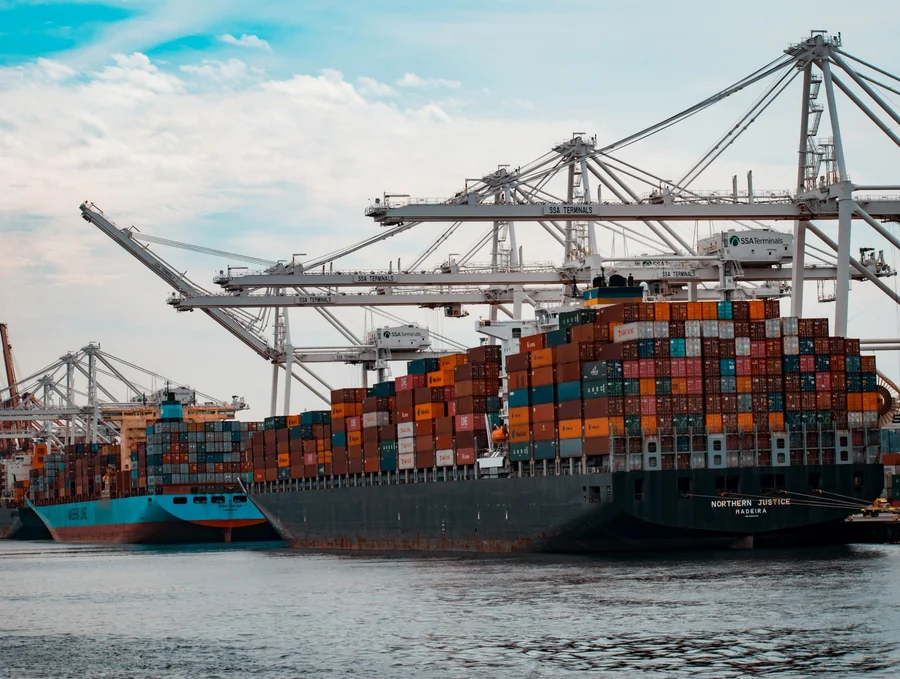Accenture’s Destination Net Zero is an analysis of net zero commitments, carbon reduction activities and emissions data at the 2,000 biggest companies.
Around a third (35%) of the largest industrial and freight (I&F) companies worldwide are committed to reaching net zero by 2050.
What’s truly concerning, however, is that less than one in six (15%) of these firms are on track to achieve this goal, according to analysis from Accenture.
Moreover, almost half (49%) of I&F companies continue to increase their carbon emissions output, highlighting the immense scale of the challenge when it comes to integrating sustainability into operations.

Accenture’s Destination Net Zero report also reveals a distinct need to expand the use of AI to reduce emissions both within and across companies, as only 17% of I&F companies display evidence of using the technology with this goal in mind.
Reinventing sustainable value chains
Destination Net Zero is an analysis of net zero commitments, carbon reduction activities and emissions data at the 2,000 biggest companies worldwide.
This year’s report finds that, while full net zero target-setting has stalled at 37%, more than half (52%) of companies have cut both carbon emissions and emissions intensity since the Paris Agreement was adopted in 2016. For I&F companies, these figures stand at 35% and 51% respectively.
However, just 16% of the world’s largest companies are currently on track to reach net zero emissions in their operations by 2050 and 45% continue to increase carbon emissions.
“A majority of the world’s largest companies are now cutting their emissions even as the size of their operations and revenues grow,” says Stephanie Jamison, Global Resources Industry Practice Lead and Global Sustainability Services Lead at Accenture.
“While this is a significant milestone, to get to net zero by 2050 all of us need to move faster, together, to reinvent sustainable value chains using deep collaboration and transformative technologies.
“AI can help but can only go so far when only 22% of AI-employing companies are currently using it for decarbonisation. The most realistic scenario is probably one in which AI initially emits more than it abates, until a critical crossover point. Responsible and sustainable scaling of AI means ensuring that crossover point is reached as early as possible.”
Using AI for decarbonisation

As part of its analysis, Accenture modelled the expected incremental use of AI-focused hardware in data centres around the world and forecast that AI-related emissions will rise more than 10-fold, from 68 to 718 million tons CO2 emissions by 2030 – in the absence of major innovation in energy systems, computing technology and algorithms.
However, most leaders are optimistic about AI’s potential in decarbonisation. When asked about their expectations of how AI will affect emissions globally, more leaders expect it to reduce emissions (42%) rather than increase emissions (27%) in the short-term (1-3 years), while a clear majority (65%) expect AI to reduce emissions over the long term (10+ years).
Elsewhere, in a sign of positive change that businesses are starting to rewire for net zero and focus on operationalising decarbonisation strategies, many of the “levers” companies can pull to decarbonise their operations and value chains have started to become standard business practice.
Five key levers – energy efficiency, waste reduction, renewables adoption, circular principles and decarbonisation of buildings – are each adopted by at least 80% of the world’s biggest companies and 30% are adopting 15 or more of these levers.
For I&F companies, the figures are as follows:
- Energy efficiency targets: 85%
- Waste reduction: 84%
- Circular principles: 84%
- Renewables adoption: 82%
- Buildings decarbonisation: 77%
- Firms adopting 15 or more levers: 29%
Europe leads the way
In addition to far outpacing their peers in having more than double the proportion of businesses with net-zero targets (64%), European companies also lead the way when it comes to AI adoption.
One in five European businesses (20%) are using AI for decarbonisation purposes, compared to 14% in the APAC and 10% in North America.
A similar proportion (59%) of European I&F companies have net-zero targets in place and are using AI to reduce emissions (25%).
Fewer I&F companies are using AI to reduce emissions in APAC (15%) and North America (13%) than in Europe.
“The recent Draghi report (on European competitiveness) highlights the need for Europe to marry decarbonisation with competitiveness,” adds Mauro Macchi, CEO of Accenture in the EMEA region.
“It’s therefore encouraging to see businesses across the region taking a lead both in setting ambitious net-zero targets and using new technologies such as AI to reduce carbon emissions. This will help boost growth and resilience as regulations such as the CSRD come into force.”



